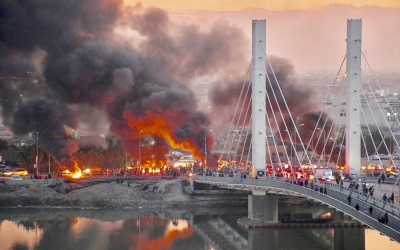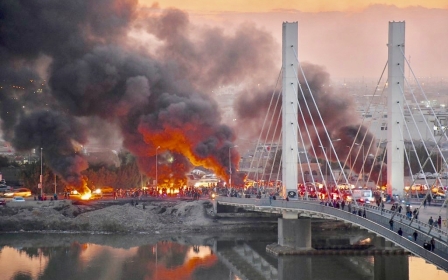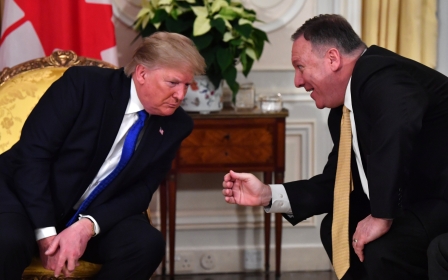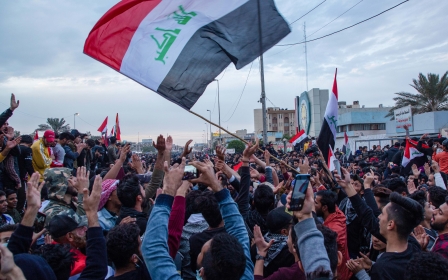Dozens of Iraqi protesters wounded as anti-government unrest resumes
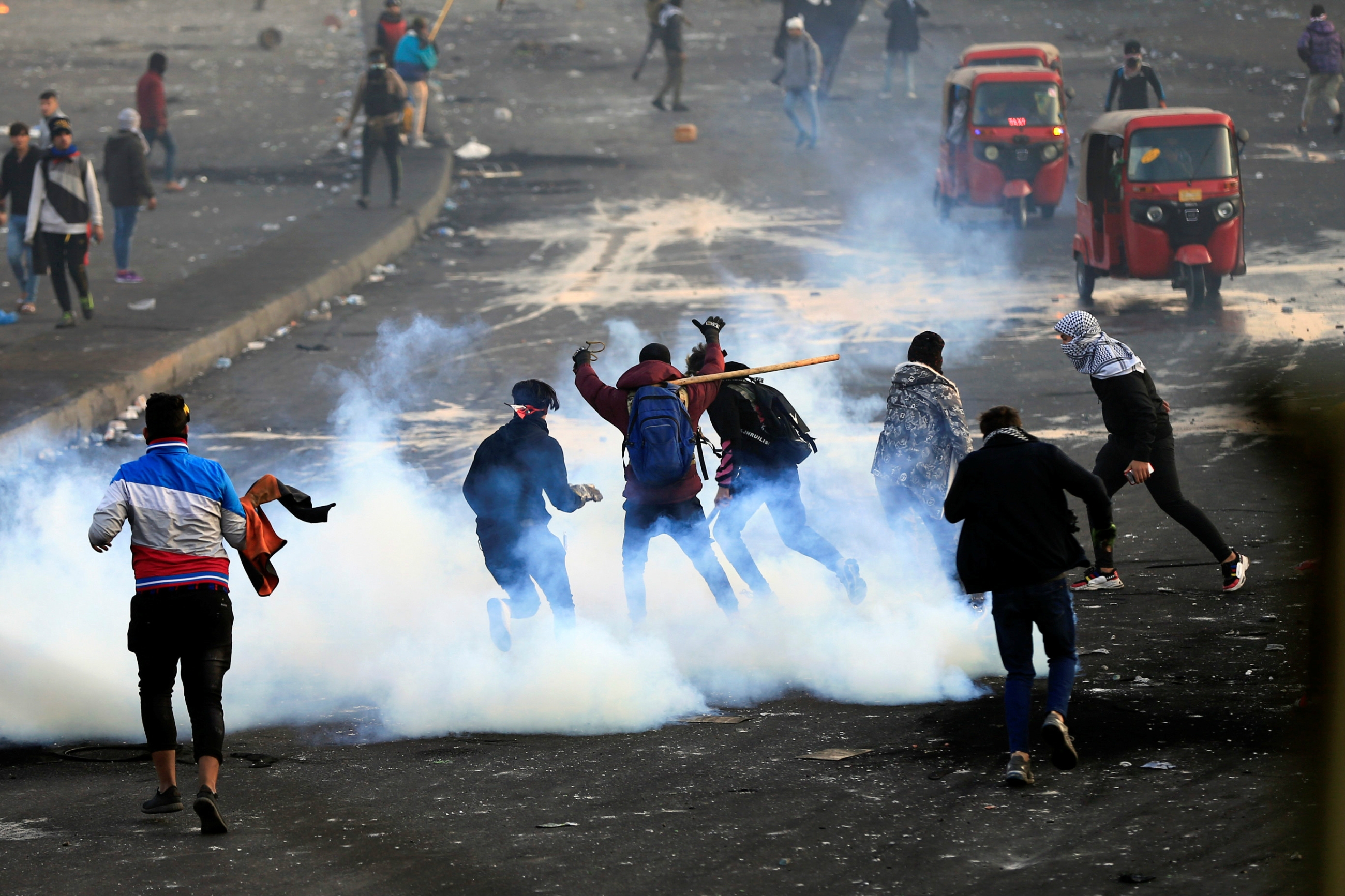
Dozens of Iraqi protesters were wounded in Baghdad and other cities on Monday in clashes with security forces who were trying to clear blocked roads, security and medical sources said.
In the capital's Tayaran Square overnight, protesters threw petrol bombs and stones at police who responded with tear gas and stun grenades, as anti-government unrest resumed after a lull of several weeks.
New MEE newsletter: Jerusalem Dispatch
Sign up to get the latest insights and analysis on Israel-Palestine, alongside Turkey Unpacked and other MEE newsletters
Elsewhere in southern Iraq, hundreds of protesters burned tyres and blocked main roads in several cities, including Nasiriyah, Karbala and Amara.
The protesters say Iraqi Prime Minister Adel Abdul Mahdi has not fulfilled promises, including naming a new government acceptable to Iraqis.
"They (the security forces) should stop shooting and aiming, who are they and who we are? Both sides are Iraqis. So why are you killing your brothers?" said one woman protester in Baghdad, who declined to give her name to Reuters.
Baghdad police said its forces had successfully reopened all the roads that were closed by "violent gatherings".
Rallies have rocked Iraq since October but fearing they would lose momentum amid spiralling regional tensions protesters last Monday told the government it had one week to meet their demands or they would escalate.
More than 450 people have been killed.
Late Sunday young protesters began sealing off highways and bridges across the capital Baghdad and Iraq's south, torching tyres and setting up makeshift barricades.
They tried to do the same early Monday in the capital but security forces acted fast, with the military saying it had reopened a major Baghdad thoroughfare and arrested nine young men who had attempted to seal it off.
Hundreds killed
On Sunday, rallies had swelled in other cities, including Diwaniyah and Kut, where most government offices, schools and universities have been shuttered for months.
In the holy city of Najaf, youth wrapped in checkered black-and-white keffiyeh and carrying Iraqi flags lit tyres and began a sit-in on a main road leading to the capital.
Numbers had dwindled but protests resumed last week as demonstrators sought to keep up momentum after attention turned to the threat of a US-Iran conflict following Washington's killing of Tehran's top general in an air strike inside Iraq.
The killing of Qassem Soleimani, to which Tehran responded with a ballistic missile attack on two Iraqi military bases housing US troops, has highlighted the influence of foreign powers in Iraq, especially Iran and the United States.
Middle East Eye delivers independent and unrivalled coverage and analysis of the Middle East, North Africa and beyond. To learn more about republishing this content and the associated fees, please fill out this form. More about MEE can be found here.


